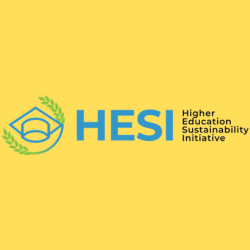[St. Louis, Missouri] – The Continents States University (CSYou) proudly announces its official recognition as a member of the Higher Education Sustainability Initiative (HESI) by the United Nations Department of Economic and Social Affairs. This prestigious approval reflects CSYou’s unwavering commitment to advancing sustainable development practices within the realm of higher education and positioning itself as a global leader in fostering a sustainable future.
The Higher Education Sustainability Initiative, in partnership with the United Nations, seeks to mobilize the transformative power of education to promote sustainable development and address global challenges. By joining the ranks of other esteemed HESI members, The Continents States University reaffirms its dedication to creating a positive impact on environmental, social, and economic dimensions, both within the academic institution and the wider community.
CSYou’s inclusion in HESI highlights the university’s successful integration of sustainable practices throughout its operations, academic programs, and research initiatives. This achievement is a testament to the tireless efforts and dedication of the entire CSYou community, including faculty, staff, students, and alumni, who have collaborated to make sustainability a cornerstone of the institution’s identity.
As a member of HESI, The Continents States University will have the opportunity to engage in dynamic international collaborations, share best practices, and contribute to global conversations on sustainable development. By leveraging this platform, CSYou aims to bolster its efforts in research, education, and community engagement to address critical challenges like climate change, environmental degradation, poverty, inequality, and more.
President Dr. Ricky Madison, expressing enthusiasm about CSYou’s new status as a HESI member, said, “We are thrilled to be recognized by the United Nations for our commitment to sustainability. This approval is a testament to the hard work of our entire community and reinforces our belief that education is the key to shaping a better and more sustainable world. As a HESI member, we look forward to collaborating with like-minded institutions and playing an active role in advancing the global sustainability agenda.”
With this momentous achievement, The Continents States University reiterates its dedication to fostering a culture of sustainability, inspiring future leaders, and creating a lasting impact on the environment and society. The university stands committed to continually improving its practices and contributing to the advancement of the United Nations Sustainable Development Goals (SDGs).
About The Continents States University
The Continents States University is a renowned higher education institution located in the heart of St. Louis, Missouri. CSYou is dedicated to providing exceptional education, fostering innovation, and cultivating responsible global citizens. The university offers a diverse range of undergraduate, graduate, and professional programs across various disciplines, empowering students to lead with integrity and make meaningful contributions to society. The Continents States University works to equip future professionals with the skills, tools, and opportunities that enable faster integration into the workforce industry around the globe by delivering affordable, quality, and competency-based education to everyone across the continents.
About The Higher Education Sustainability Initiative
Is an open partnership between several United Nations entities and the higher education community launched in the lead-up to the Rio+20 Conference in 2012. It is currently chaired by the United Nations Department of Economic and Social Affairs (UN DESA). Other UN partners include UNESCO, UN Environment Program, UN Global Compact’s Principles for Responsible Management Education initiative, UN University, UN-HABITAT, UNCTAD, UNITAR, UN Office for Partnerships, and UN Academic Impact.


